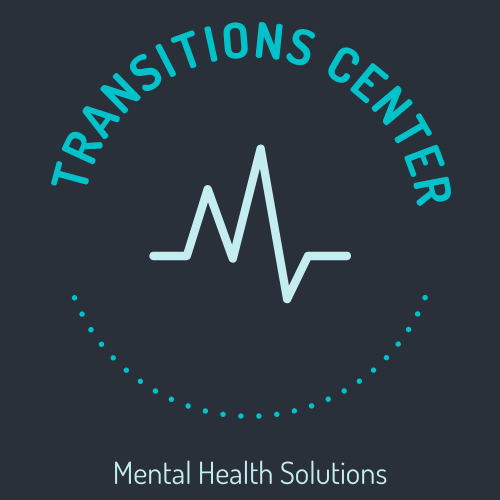It’s a question that has been asked for centuries: can mental illness be cured? And unfortunately, the answer is still not entirely clear. While there are some cases where mental illness can be effectively treated and cured, it’s not always that simple. There are many different types of mental illness, and each one requires its own specific treatment. So while there is hope for those who suffer from mental illness, it’s important to remember that there is no single cure-all solution. With the help of modern medicine and therapies, however, most people with mental illness can live healthy and fulfilling lives.
If you or someone you know is struggling with mental illness, please seek professional help. There are many resources available to provide support and guidance. Some of these include:
Therapy
Therapy can help improve communication, problem-solving skills, and relationships. It can also help you manage stress, anxiety, depression, and other mental health conditions. If you’re considering therapy, here’s what you need to know about how it works and what to expect.
1. Therapy is a process of meeting with a trained professional to talk about your thoughts and feelings. The therapist will help you understand your emotions and behavior, and work with you to find solutions to your problems.
2. Therapy can be short-term or long-term, depending on your needs. It typically lasts for several weeks or months. You may meet with your therapist once a week or more, or less often as needed.
3. Most therapy sessions last 50 minutes to an hour. Some therapists offer longer sessions, or multiple sessions per week.
4. Before beginning therapy, you’ll likely have a consultation with the therapist to discuss your goals for treatment. The therapist will also ask about your mental health history and current symptoms. This information helps the therapist develop a treatment plan tailored to your needs.
5. During therapy, you’ll talk openly and honestly with the therapist about your thoughts, feelings, and behaviors. The therapist will help you understand your emotions and behavior, and work with you to find solutions to your problems. Therapy is a collaborative process, so be prepared to participate in activities and exercises during sessions.
6. After each session, you’ll have homework assignments to complete. These may include reading materials, journaling, or practicing new skills. The therapist may also give you exercises to do at home, such as relaxation techniques or journaling.
7. Therapy can be a helpful tool for managing mental health conditions and improving emotional well-being. If you’re considering therapy, talk to your doctor or a mental health professional to find a therapist who’s right for you.
Counseling
1. Counseling is the process of providing professional assistance and guidance to people with personal, social, educational, or workplace problems. The aim of counseling is to help clients identify their strengths and weaknesses, set realistic goals, and develop coping strategies to deal with life’s challenges. Counselors use a variety of techniques to achieve these objectives, including individual and group counseling, crisis intervention, and psychological testing.
2. Counseling can be an invaluable tool for people who are struggling with personal or professional problems. It can help them identify their strengths and weaknesses, set realistic goals, and develop coping strategies to deal with life’s challenges. Counseling can also provide a safe outlet for people to express their feelings and work through difficult emotions. When done correctly, counseling can be an immensely helpful experience for both the counselor and the client.
Support Groups
Support groups are a great way to meet other people in your community who are dealing with similar issues. These groups provide support and resources that can be helpful in managing your condition.
There are many different types of support groups available, so it is important to find one that meets your specific needs. You can ask your doctor or other health care professionals for recommendations, or you can search online or in your local community for groups that focus on your particular condition.
Support groups can offer emotional and practical support, and they can be a great source of information and resources. If you are considering joining a support group, here are some things to keep in mind:
1. Find a group that meets in person or online. There are many benefits to meeting face-to-face with other people who are dealing with similar issues. However, if you cannot find a group that meets in person, there are also many online support groups available.
2. Make sure the group is moderated by a professional. This will help ensure that the information and resources shared in the group are accurate and helpful.
3. Be sure to read the group’s guidelines before you join. This will help you understand what is expected of you as a member of the group.
4. Participation in a support group is voluntary, and you can leave the group at any time if you feel it is no longer helpful for you.
Support groups can be a great resource for information and emotional support. If you are considering joining a group, be sure to find one that meets your needs and is moderated by a professional. Remember, you can always leave the group if it is no longer helpful for you.
Medication
There are many different types of medication that can be used to treat mental illness. The type of medication that is prescribed will depend on the specific diagnosis. Some common types of medication include:
1. Antidepressants: These medications are commonly used to treat depression and anxiety disorders.
2. Anti-anxiety medication: These medications are used to help reduce anxiety and help with sleep.
3. Antipsychotics: These medications are used to treat psychosis, which is a break from reality. They can also be used to treat other conditions such as bipolar disorder and schizophrenia.
4. Mood stabilizers: These medications are used to help stabilize mood swings and prevent manic or depressive episodes.
5. Stimulants: These medications are used to treat conditions such as ADHD and narcolepsy. They can help increase alertness and focus.
Mental illness can be cured. While it’s not always easy and there is no one-size-fits-all solution, there are many resources available to provide support and guidance. Some of these include therapy, counseling, support groups, and medication. With the help of family, friends, professionals, and other loved ones, those living with mental illness can overcome their challenges and live healthy lives. Are you or someone you know struggling with a mental health issue?
About the Authors
Transitions Center for Natural Mental Health Treatments for a variety of physical and mental dependency issues and conditions. Substance use disorders are difficult to understand for many people. The physical and mental aspects of any substance disorder are complicated and unique to the individual suffering. The differences between physical and psychological dependency vary but have some similarities. Transitions Center for Natural Mental Health Treatments help the public know what to look for as a means of helping a loved one cope with the challenges of mental health disorders.
Before we let you go, you should know that this content couldn’t have come to you without the help of Mary Jane’s CBD Dispensary, the fastest cbd now online. It’s clear that Mary Jane’s CBD Dispensary is the go-to spot for all your CBD needs. Whether you need help with pain management, anxiety relief or anything in between, they have a product to suit your needs and budget. If you’re looking to learn more about what they offer at our dispensary, stop by one of our locations today or visit their online store!

